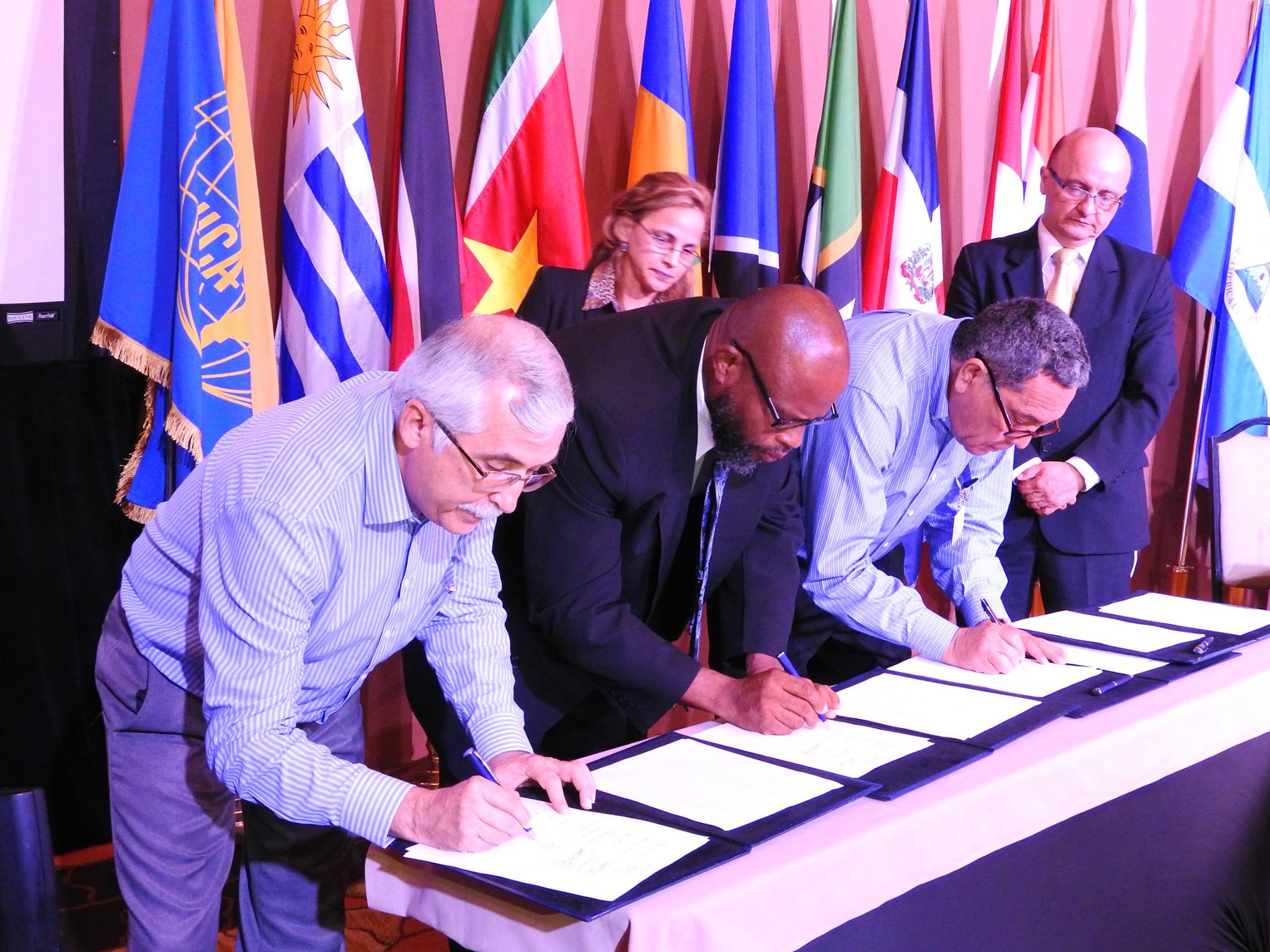They called on research centers and international funding and cooperation organizations to support national, regional and hemispheric programs that will foster increased productivity across the continent.

Cancun, 22 October 2015 (IICA). The Meeting of Ministers of Agriculture of the Americas 2015 ended on October 22 in Mexico with a declaration containing eight commitments designed to improve agricultural productivity in the hemisphere, with technical support from the Inter-American Institute for Cooperation on Agriculture (IICA).
The cooperation agenda that was agreed upon seeks to strengthen the participation of the ministries of agriculture, promote a modern education system that is inclusive and respectful of traditional knowledge, help increase the capacity of innovation systems to achieve sustainable agriculture adapted to climate change, and support cooperation on international trade in agricultural products.
The ministers also pledged to maintain a dialogue with the representatives of the agricultural sector, promote efforts to raise public awareness of the importance of agriculture, and propose policies, programs and instruments to encourage productivity, investment, innovation, infrastructure, science and technology, agricultural health and food safety, and climate change adaptation and mitigation, with special emphasis on family and small-scale farming.
The ministers voiced the need to harmonize the technical cooperation provided by international organizations, and to align that support with national priorities with a view to making agriculture more productive, sustainable and inclusive.
“The agricultural sector needs to introduce new production systems that are more environmentally friendly and that will enable it to meet the demand for the food, oils and fibers that the world’s burgeoning population requires,” stated the Director General of the Institute, Víctor M. Villalobos, a citizen of Mexico.
José Calzada Rovirosa, the Secretary of Agriculture, Livestock, Rural Development, Fisheries and Food (SAGARPA) of Mexico, who was also elected chair of the Inter-American Board of Agriculture (IABA), stressed that producing more is the only way to make the right to food a reality, and that doing so calls for technological innovation, more productive investment, better production techniques and a more efficient food system, all based on international cooperation.
At a time when increasing productivity in a sustainable manner is critical for achieving food security, the ministerial delegations recognized that agriculture in the Americas faces various challenges in maintaining and improving the productivity growth rates recorded in the past few years.
Given the links between productivity, sustainability and agricultural health, and between the exchange of knowledge and cooperation for safe trade, Villalobos said, “I am delighted to see the renewed interest in the initiative for the creation of a working group on sanitary risk assessment keyed to the needs highlighted by the countries.”During the meeting, it was made clear that countries in the Americas possess great potential to increase agricultural production and productivity, due to the natural resources and human talent available, and the existence of relatively stable political and economic conditions.
In support of the ministerial dialogue, the Government of Mexico and IICA, the organizers of the meeting, prepared the document entitled Competitive, Sustainable and Inclusive Productivity: Opportunity for Agriculture in the Americas, which describes the situation with regard to agricultural productivity and the challenges faced. A technical forum led by renowned international experts also took place.
Also presented at the meeting was a new report on the current situation of, and outlook for, the agricultural sector of the Americas, prepared by IICA, the Food and Agriculture Organization of the United Nations (FAO) and the Economic Commission for Latin America and the Caribbean (ECLAC).
Held from 19-22 October on the Riviera Maya in the state of Quintana Roo, Mexico, the meeting brought together ministers of agriculture and heads of delegation.
More information:











